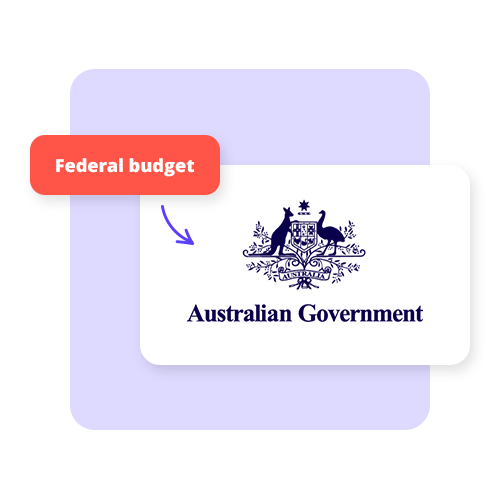2025 Federal Budget Update
Understand the key takeaways from the March 2025 Federal Budget and how it will affect your business.
What is the budget?
The Australian Federal Budget is prepared by the Treasurer and presented to Parliament. The budget outlines the proposed revenue and spending of the Australian Government for the upcoming financial year. The Federal Budget is also a political statement of the government’s intentions and priorities for the upcoming financial year and beyond.
The majority of government revenue comes from income & company tax, sales tax (GST), and interest and dividends. The government needs this revenue to pay for the public goods and services it provides, including, education, health, defence, infrastructure, welfare, and much more.

What did the March 2025 budget deliver?
The 2025 Federal Budget was largely focused on income tax cuts for all and cost of living measures. While not a heavily SME focused Budget, there was still plenty in there for Australian small businesses. Here are the key takeaways from the latest Budget announcement that may affect you and your business.
The latest resources to help you manage the budget

A roadmap for small businesses for 2025
Read more >

Dealing with inflation as a small business
Read more >

Managing business growth
Read more >
You’ll always be ready for tax time with Reckon One!
Take control of your finances in the new financial year.
Cancel anytime.

























